No Results Found
The page you requested could not be found. Try refining your search, or use the navigation above to locate the post.
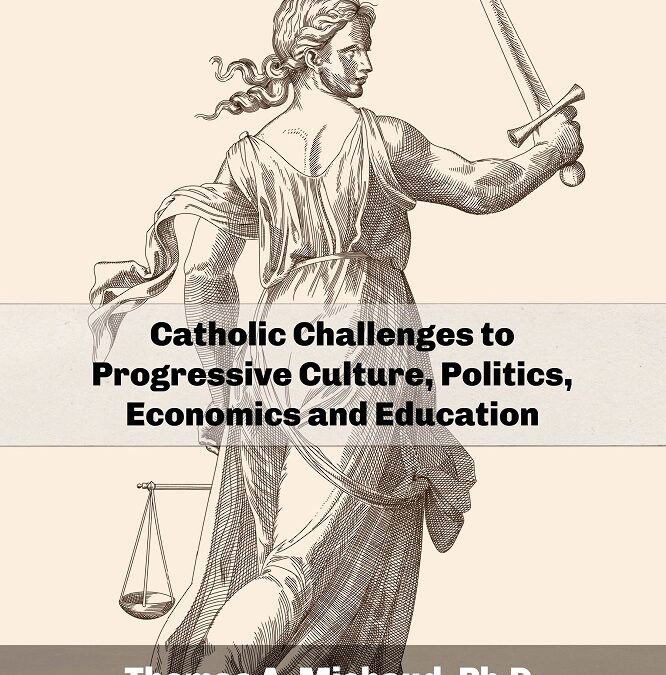
In recent decades in the United States, various derivative forms of Progressivism have emerged that manifest its lack of philosophical cohesion and authoritarian proclivity, such as:
1) Postmodernism, which was actually anti-Modernism with its rejections of Rationalism, Scientific Positivism and any traditional-based metaphysics and ethics;
2) Authoritarian Politically Correct and Cancel Culture standards of moral righteousness; and,
3) Woke mentality that employs social and mainstream media to transform the “people” into a conformist, hive-minded ruling mob.
This book demonstrates in an Augustinian manner how contemporary Progressivism, to its own detriment, has become a political ideology and can no longer be considered a political philosophy.
Paperback: $19.95 | Kindle: $9.99
Hancock, Curtis. (2023, Feb. 1). “The Catholic Challenge to Progressivism.” The Postil Magazine. To read the review, click here.
“What kind of Catholics are needed in modern politics? Considering Thomas Michaud’s book After Justice: Catholic Challenges to Contemporary Culture, Politics, Education and Economics, one can argue that modern politics especially needs Catholics of intelligence and virtue. For only an intelligent Catholic will recognize the fact that the contemporary political forum is under the spell of Progressivism, giving preference to opinion over truth, positive law over natural law, and ideology over philosophy. In turn, only a virtuous Catholic will be able to oppose the power of Progressive nominalism, conventionalism, and manipulation in the most ethical and effective way. With Michaud’s book comes the hope that the intelligence and virtue that make up Catholic ethos will also make it possible to protect current and future culture, politics, education, and economics against the disastrous consequences of Progressivism.” – Fr. Paweł Tarasiewicz, Ph.D. – Adler–Aquinas Institute, Colorado Springs, Colo., USA
“Thomas A. Michaud’s After Justice is a collection of the author’s articles focused on issues fundamental to understanding Western culture, including philosophy, religion, politics, democracy, leadership, education, rhetoric, and economics. Michaud explains these issues, pointing to their threats occurring in contemporary reality, as well as showing the deep context of philosophical transformations taking place in these areas of culture. He explains in a very perceptive way the causes of the phenomena discussed, which include nihilism, relativism, progressivism, atheism, liberalism, individualism, collectivism, and totalitarianism. The problems explored here are fundamental and eminently practical issues, both for humanity itself and for our culture. The path we take in explaining them, however, is extremely important. It must be an authentic philosophical cognition, which is built on the search for knowledge of the ultimate truth about the meaning of human life, as well as reality as a whole. This cognition, which is essentially at the service of the truth and respect for the human good, offers the chance to reveal and overcome the evils of various errors and ideologies. Such is the very rich philosophical perspective that this book presents to us.” – Dr. Habil. Imelda Chłodna-Błach, John Paul II Catholic University of Lublin
“Tom Michaud is a genuinely unforgettable character. He has a certain American quality in strength of character and voice, and yet these qualities are complemented by a graceful and dexterous imagination, a razor-sharp intellect, and an irrepressible sense of humor. These talents combine to make him an arresting storyteller, with a talent for perceiving in ordinary events grounds for extraordinary narrations. Dr. Michaud is also an accomplished academic of international renown. He is a philosopher’s philosopher because he loves the truth, fortified by the conviction that reason and realism are necessary conditions to find the truth. As a lover of reason, he also explores truth in Christian teachings, recognizing, as did Aquinas, that reason is faith’s best friend. This book is both an intellectual treasure and a remedy for our deformed times, especially for those who hope for the triumph of justice.” – Professor Dr. Hab. Piotr Jaroszyinski, John Paul II Catholic University of Lublin, Poland

Thomas A. Michaud, Retired, Dean, School of Professional Studies and Professor of Philosophy, West Liberty University (WLU) earned his M.A. and Ph.D. from Marquette University and his B.A. (Honors) from Fairfield University (CT). He has taught at Wheeling Jesuit University, Marquette University, Mount St. Mary’s University (MD), Siena University (NY), and Rockhurst University (Kansas City, MO). His international experience includes a Smith Fellowship for the Husserl Archives at the University of Louvain (Leuven), Belgium, a Senior Fulbright Lectureship for the Federal University of Rio de Janeiro, Brazil, and the inaugural lecturer for the Rev. Jacek Woroniecki Memorial English Language Lectures in Philosophy, John Paul II Catholic University of Lublin, Poland.
Emphasizing his “common sense” approach, he has held seminars in leadership and ethics for many government and civic groups, professional associations, non-profit organizations, and educational institutions (including Duke Univ.’s Fuqua School of Business MBA program). In addition, Tom has designed and delivered extensive leadership ethics education programs for Wheeling Pittsburgh Steel Corp., Columbia Gas Transmission Corp., Columbia Gulf Transmission Company, Columbia Natural Resources Corp., Cabela’s Distribution Center and Dermox Corp.
He is the recipient of a WV Humanities Council Research Fellowship, former Director of the WV Business and Professional Ethics Project, a Kettering Foundation Contract Scholar, and a past-President of the Gabriel Marcel Society. He is also past-Vice President of the WV Humanities Council, and a former member of the Executive Council of the American Catholic Philosophical Association.
Besides writing a business ethics and leadership column (1996 to 2007) for The State Journal (WV’s leading business newspaper), he also has regularly written editorials for Nasz Djiennik (a Polish Catholic newspaper). His course text, The Virtues of Business Ethics, is published by Copley Custom Publishing Group, Third Edition, 2010. His numerous papers, articles and reviews include publications in Philosophy Today, Renascence, The Review of Metaphysics, The Philosophy Research Archives, The lnter-American Review of Bibliography, Studia Gilsoniana, Man in Culture, The Kettering Review, Higher Education Exchange, Studia Philosophiae Christianae, Business Ethics Magazine and Ethics West Virginia. The anthology he edited and introduced, Gabriel Marcel and the Postmodern World, appeared as a special double volume of the Journal of the American Society of Philosophy in the French Language. He was also the Guest Editor for and a contributor to the Gabriel Marcel special issue of The American Catholic Philosophical Quarterly.
Dr. Michaud regularly designed courses for, taught in, developed and implemented various types of non-traditional, accelerated adult degree completion programs. These include both undergraduate and graduate (Master of Science in Organizational Leadership, MBA, Executive MBA, Master of Professional Studies- MPS) programs. As Dean, Michaud essentially started the WLU School of Professional Studies (SPS), initiating its programs (Bachelor of Leadership and Administration, Professional Studies course concentrations, Master of Professional Studies in Organizational Leadership and Justice Leadership) and contributing to the management of the WLU Highlands Center.
The page you requested could not be found. Try refining your search, or use the navigation above to locate the post.
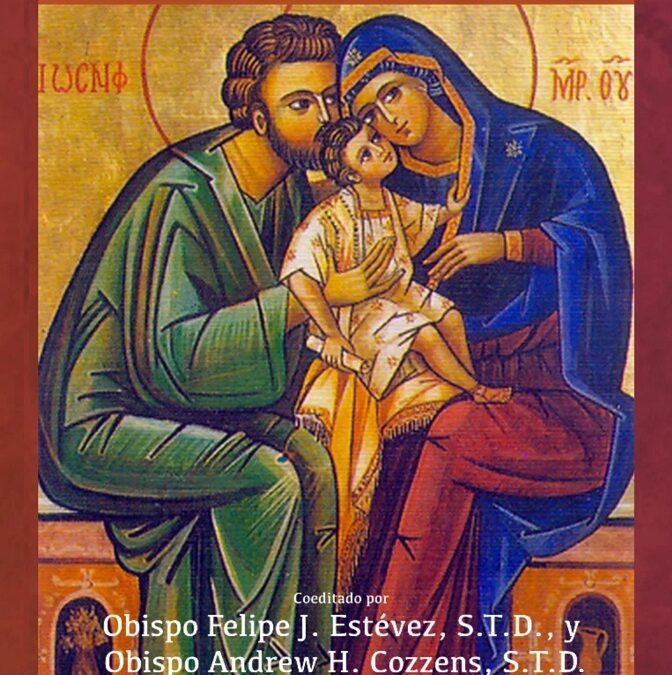
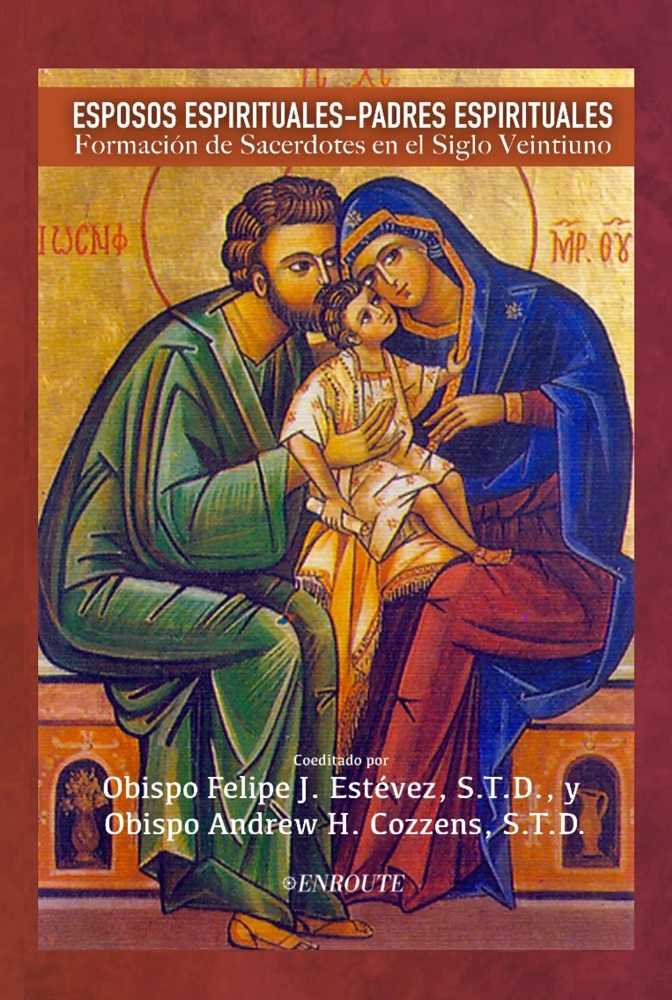
¡Ahora en español!
En este libro se dan muchas referencias que asisten en la formación integral y que tienen en cuenta las necesidades humanas y espirituales de cada seminarista católico. El libro está dividido en tres secciones. La primera parte del libro suministra la meditación espiritual y teológica para ayudar a los sacerdotes y seminaristas a entender el don del celibato del esposo. La segunda parte del volumen presenta una colección de recursos psicológicos para la formación de la madurez afectiva. La tercera parte de este trabajo suministra las herramientas espirituales para profundizar la madurez afectiva. En esta sección lo espiritual y lo psicológico se unen, tal como lo saben los buenos formadores espirituales, para obtener una visión de la libertad espiritual de un hombre afectivamente maduro. La finalidad de este libro es escribir un recurso de ayuda espiritual y psicológica profunda que engendre madurez afectiva y una fructífera y casta celibato para la renovación de la formación de sacerdotes. Este es el deseo de la Iglesia expresado en la Ratio Fundamentalis de 2016 y en el Programa de formación sacerdotal, sexta edición. Esperamos que los formadores en el seminario, los seminaristas y muchos más encuentren en este libro un recurso que les ayude en su misión.
Libro en rústica: $29.95 | Libro electrónico: $9.95
In support of Chapter 18 "Consciousness Examen" by Fr. George Aschenbrenner, SJ.
Rev. Larry Christenson on “Unilateral Forgiveness” – in two parts on YouTube.
“¡Esposos espirituales – Padres espirituales es una profunda contribución a la Iglesia y debe ser una lectura prioritaria para todos los obispos como formación episcopal permanente esencial! Esta colección de recursos, editada por los obispos, Estévez y Cozzens, proporciona una presentación esencial del celibato y una guía práctica para todos los que tienen encomendada la obra de formación en el seminario. La comprensión del celibato sacerdotal ricamente desarrollada en estos artículos es un recurso único en la Iglesia para formadores de seminarios, obispos y clérigos. Esposos Espirituales – Los Padres Espirituales serán altamente referenciados en el trabajo de formación sacerdotal para las generaciones venideras”. — Mons. Joseph Hanefeldt, Diocesis de Grand Island, Nebraska
“A menudo miramos a los sacerdotes como ‘Padres Espirituales’ y rara vez como ‘Esposos Espirituales’. Es un enfoque interesante y abarcador profundamente arraigado en la teología patrística con el objetivo de preparar a los seminaristas de hoy afectiva, intelectual, pastoral y espiritualmente para asumir ese papel de entregarse a la Iglesia (esposos) y al pueblo (padres)”. — Mons. A. Elias Zaidan, Eparquía Maronita de Nuestra Señora de Líbano de Los Ángeles.
“Tanto los obispos Estévez como Cozzens, así como los otros contribuyentes a este libro, tienen amplios antecedentes de formación en seminarios y clérigos, y ofrecen muchas ideas útiles tanto para formadores como para discernidores. Los autores ofrecen perspectivas equilibradas, aunque matizadas, para ayudar a nuestros futuros sacerdotes a entenderse a sí mismos como padres castos, célibes, padres espirituales y novios de la Iglesia. Los artículos contenidos en este documento ayudarán en la formación de hombres sanos e íntegros que sean capaces de convertirse, para el pueblo de Dios, en donación de sí mismos, a través del autoconocimiento y la curación. Después de casi una docena de años como formador de seminario, encuentro este libro una contribución útil a mi trabajo con ideas a las que a menudo volveré para una mayor oración y reflexión”. — Mons. David L.Toups, S.Th.D., Obispo de la Diocesis de Beaumont, Texas, ex Rector/Presidente, St. Vincent de Paul Seminario Regional, Boynton Beach, Florida
“El llamado de cada discípulo cristiano es hacer un don sincero de sí mismo en amor y sacrificio por el bien del otro. Para el sacerdote, esto sucede de manera especial a través del carisma del celibato casto, donde se configura como novio de Cristo en su amor por la Iglesia. Este libro ayudará a los formadores de seminario en su tarea de ayudar a los seminaristas a recibir este precioso don y equiparlos para vivirlo por el resto de sus días en un servicio gozoso a la Iglesia”. — Padre Joseph C. Taphorn, JCL, Rector, Seminario de Saint Paul, Saint Paul, Minnesota.
“Esposos Espirituales – Padres Espirituales proporciona un exceso de riquezas para aquellos involucrados en el trabajo de formación sacerdotal. La variedad de autores proporciona una profundidad de perspectiva, y las múltiples áreas de experiencia representadas en este documento aseguran una presentación que es a la vez global y equilibrada. Este volumen será una adición bienvenida a la biblioteca de cualquier persona involucrada en el trabajo de formar a los futuros sacerdotes de la Iglesia de Cristo”. — Padre Robert S. Horihan, Rector del Seminario del Inmaculado Corazón de María, Winona, MN.
“El Papa San Juan Pablo II escribió en Pastores Dabo Vobis, n. 44. ‘ La madurez humana, y en particular la madurez afectiva, requiere una formación clara y fuerte en libertad». Los ensayos de este volumen ayudarán a formadores y seminaristas a formarse en la libertad que conduce a la madurez afectiva. Agradecido a los autores por este trabajo”. — Mons. Dan Trapp, Director de Formación Espiritual del Seminario del Sagrado Corazón de Jesús, Detroit.
“En estos tiempos difíciles en la historia de nuestra Iglesia, este libro es muy oportuno. En estas páginas, los católicos descubrirán de nuevo la belleza del don del sacerdocio y la sabiduría de la Iglesia. Este libro es verdaderamente un tesoro de formación de artículos y ensayos inspiradores no solo para sacerdotes, seminaristas y sus directores espirituales y formadores, sino para todos los católicos que aman a la Iglesia y buscan inspiración y consejos prácticos para su propio crecimiento personal en santidad”. — Alicia G. Goodwin, M.A.T.S., Presidente de la Casa de Oración Nuestra Señora de la Divina Providencia®
“San Juan Pablo II escribió una vez: ‘Vive tu vida en la dimensión del don’. Toda vocación tiene que ver con esto; ciertamente el Santo Sacerdocio. Pero nemo dat quod non habet: uno no puede dar lo que no tiene. Es precisamente porque la auto posesión siempre precipita el don de uno mismo que requiere madurez afectiva. Esta colección de 22 artículos sobre la madurez afectiva es un tesoro para directores de vocaciones y formadores de seminarios escritos por algunos de los mejores educadores. ¡Será una tremenda bendición a medida que la Iglesia continúe progresando en la implementación de la Ratio!” — Padre Brett A. Brannen, autor de To Save A Thousand Souls: A Guide for Discerning a Vocation to the Diocesan Priesthood
“Basándose en las Sagradas Escrituras, los Padres de la Iglesia, los místicos, los concilios ecuménicos y los escritores espirituales contemporáneos, “Esposos espirituales – Padres espirituales,” habla directamente del deseo de cada sacerdote de una mayor conformidad con Cristo Sumo Sacerdote, a través de una relación más íntima y vivificante con María. Será una herramienta útil, especialmente para aquellos encargados de la formación de futuros sacerdotes en medio de estos tiempos difíciles”. — Padre Mark Ivany, Director de Vocaciones Sacerdotales, Arquidiócesis de Washington, Director de Formación Pastoral, Seminario San Juan Pablo II
“Esposos Espirituales – Padres Espirituales presenta una visión cautivadora para la formación sacerdotal basada en el llamado universal de todos los hombres a la paternidad fundada en un llamado esponsal. Ya sea que este llamado sea al matrimonio carnal, o espiritual, se cumple genuinamente con un compromiso maduro con un don de sí mismo libre, total, fiel y fructífero a su amada. Para el sacerdote, este don sincero de sí mismo se vive auténticamente a través del celibato casto, liberándolo para cumplir su llamado a ser el padre espiritual de su rebaño. Esta antología de artículos es un complemento importante a los recursos de formación sacerdotal”. — Catherine Loh, M.A. Teología, Diocesis de Palm Beach, Director de Matrimonios, Vida Familiar, Formación de la Fe, y Ministerio Joven.
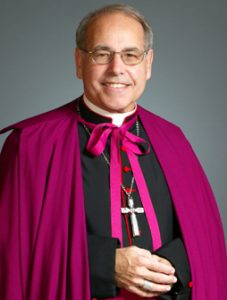
El Muy Rev. Obispo Felipe J. Estévez, S.T.D., nació el 5 de Febrero de 1946 en la Habana, Cuba y llegó a los Estados Unidos en la operación de los vuelos Pedro Pan cuando era todavía un adolecente. Fue ordenado en 1970 y ha hecho estudios extensivos en teología espiritual obteniendo su doctorado en la universidad Gregoriana de Roma. Habla con fluidez inglés, español, francés e italiano. De 2001 a 2003, el obispo Estévez sirvió como director espiritual en el Seminario Regional San Vincente de Paúl en Boynton Beach, Florida, en donde sirvió como rector entre 1980 y 1986. Durante 14 años, fue el pastor de San Agatha en Miami, dirigiendo al mismo tiempo el ministerio universitario en la universidad Florida International. El 21 de noviembre de 2003, fue nombrado Obispo Auxiliar y ordenado el 7 de enero de 2004. Estuvo a cargo de los servicios pastorales de la arquidiócesis incluyendo la vida familiar, la juventud, prisiones y respeto a los ministerios de la vida y de todos los movimientos de la iglesia y de las nuevas comunidades. En el año 2010, fue nombrado Vicario General de la Arquidiócesis de Miami. En Abril 27 de 2011, el Papa Benedicto XVI nombró al Obispo Auxiliar Felipe J. Estévez el décimo Obispo de San Agustin. En junio 2 de 2011, en la Iglesia Católica de San José de Jacksonville fue consagrado como Obispo. El obispo Estevez es el segundo de los tres hijos (Carlos y Marty) del difunto Adriano y Estrella Estévez.
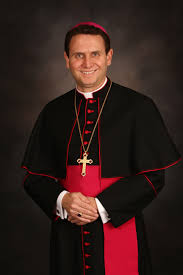
El Reverendo Andrew Cozzens, S.T.D., es el obispo auxiliar de la Archidiócesis de San Pablo de Minneapolis. Actuó como formador del seminario durante ocho años, en el foro externo, profesor y rector interino. En el momento sirve como presidente del Consejo de Formación de Seminaristas, del cual también es socio fundador, y es el presidente del Instituto de Formación de Sacerdotes con sede en Omaha, Nebraska. Su disertación doctoral la hizo en Imago Vivens Iesu Christi Sponsi Ecclesiae: el sacerdote como imagen viviente de Jesucristo el Novio de la Iglesia a través de los consejos evangélicos, enfocado en la relación entre el sacerdote y los consejos evangélicos, basados en el llamado al sacerdocio para vivir en imitación de Jesucristo, el Novio de la Iglesia.
The page you requested could not be found. Try refining your search, or use the navigation above to locate the post.
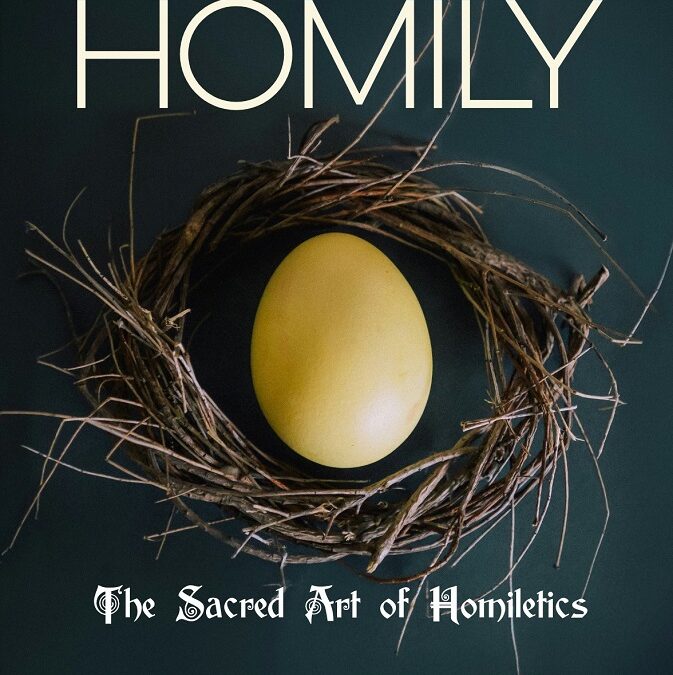
Home for The Homily: The Sacred Art of Homiletics concerns a new and required depth of preaching the word of God within the Mass. This calls for a new and deeper appreciation of communication skills. The homilist may no longer stand separately on the shoreline nor drift in the safety of shallow waters, rather he must have the faith of Peter to “put out into deep water.” This requires depth of soul, depth of character, depth of vulnerability, and depth of skill. When Christ asks Peter to “put out into the deep water,” Peter considers his level of faith in Jesus and decides, by grace, to do so. This is a pivotal moment; without this affirmative decision there will be no catch. It is no different for the homilist today. The intimacy and depth of the effective homily requires an affirmative decision to put out into the deep. May this book help you, the homilist, put out into the deep and thereby, allow the homily to reach its four sequential destinations: the home of the Mass, the home of the Intellect, the home of the Heart, and the home of the Will, the domestic Church where homily is lived out.
Paperback: $19.95 | Kindle: $9.99
“The author has produced a Homiletic Masterpiece, theologically sound and pastorally relevant for seminarians, Seminary formators and the ecclesial audience. Highly recommended.” –Fr. Dominic Anaeto, Professor of Pastoral Theology, Holy Apostles College & Seminary, CT
“This book Home for the Homily is OUTSTANDING. Not to covet but I wish I had written it and I have so little I could possibly add to it. I was in National Public Speaking contests… You captured ALL the core elements and the most often ignored: GREAT PUBLIC SPEAKING TECHNIQUES, preparation… This is a work of art and needs to be on all Priests and Deacons reading list! Thank you for this work.” – Dcn. John Silvia, Rhode Island
“I’ve known Kiki for many years and been a glad recipient of her Homiletics instruction. She offers important technical and practical insights to delivering God’s Word to the faithful, which has been invaluable. I wholeheartedly recommend her work.” – Fr. Skip Thompson, MSA, Retreat Director, Santa Clara Parish, Oxnard, CA
“I’ve been blessed to work with Kiki. Her guidance is simple, profound, and practical and deeply grounded in the Church’s homiletic tradition. I recommend her wisdom to both veteran homilists and preachers in initial formation. She has made a tremendous contribution to the preaching of the Church.” –Fr. Erik Lenhart, OFM Cap. S.T.L. St. Lawrence Friary, Beacon, NY.
“Kiki Latimer’s book is full of pungent insights into how priests should preach homilies. The fruit of years of teaching homiletics, I wish every seminarian, deacon and priest would read her book.” –Dr. Ronda Chervin, retired philosophy professor, author of numerous books about Catholic Spirituality, and media presenter
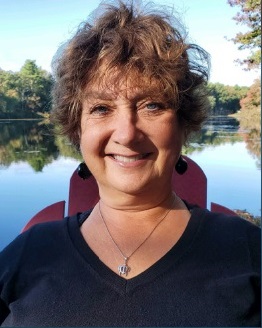 Kiki Latimer, author, public speaking coach, editor, and teacher of Homiletics, received her BA from the University of Rhode Island in the Oral Interpretation of Literature, Psychology, and Philosophy and her MA in Moral Theology from Holy Apostles College & Seminary.
Kiki Latimer, author, public speaking coach, editor, and teacher of Homiletics, received her BA from the University of Rhode Island in the Oral Interpretation of Literature, Psychology, and Philosophy and her MA in Moral Theology from Holy Apostles College & Seminary.
The page you requested could not be found. Try refining your search, or use the navigation above to locate the post.
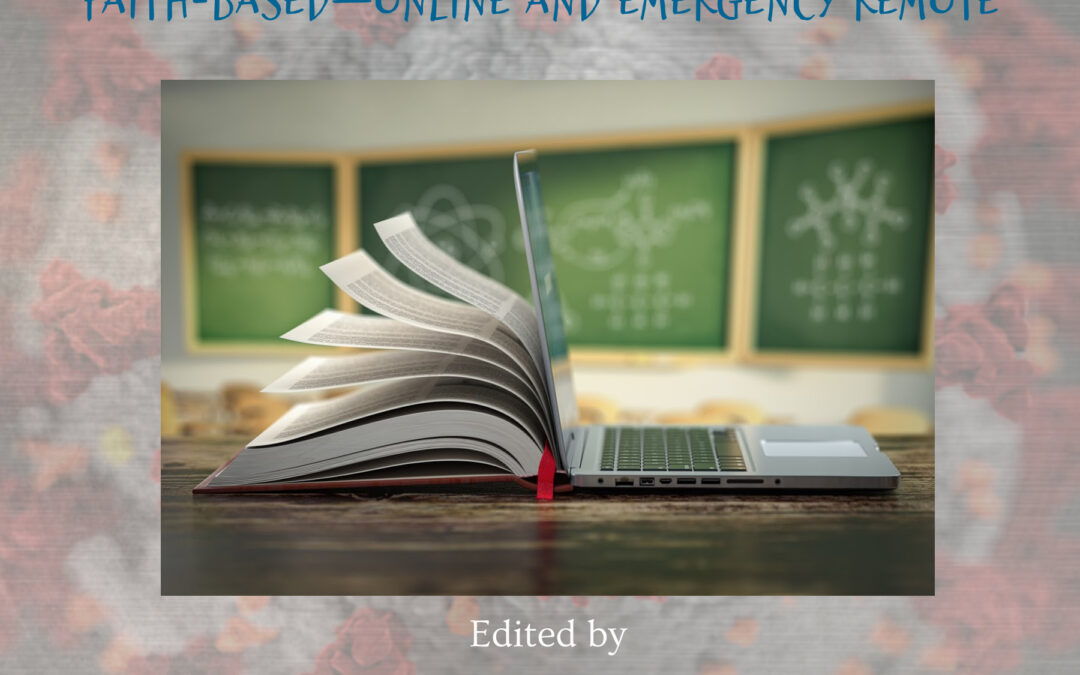
with a Foreword by Dr. Mary E. Lowe
Over the past two decades, a generation of educational technologists and instructional designers have been working in our theological schools across the United States to assist faculty in the use of appropriate technologies within their teaching and learning environments. Originally, the classrooms in which they worked were of the brick-and-mortar kind with faculty and students physically showing up to a certain space within a scheduled time of the week. Increasingly, the classrooms have become of the digital kind with faculty and students meeting in a virtual commons over the expanse of a given week. With the rise of COVID19 in March, 2020, and the subsequent lockdown, faculty were asked to engage their students via Emergency Remote Learning, which required everyone to learn on the fly how to develop and manage a virtual classroom in real time. This book offers assistance to faculty as we continue our work of digitally engaging our brick-and-mortar students.
Paperback $19.95 | Kindle $9.99
Foreword by Mary Lowe
Introduction by Sebastian Mahfood, OP
Engaging the Literature
1. Online Homiletical Pedagogy as Difficult Conversation by Dave Bland
2. Compensation and Ownership: The Current State of Online Course Development at Christian Colleges by Rebecca Hoey and Fawn McCracken
3. Online Doctoral Students at a Faith-Based University: Concerns of Online Education by Kelly Price, Julia Price, and Deborah Hayes
4. An Investigation into the Implications of Dewey’s “Learning Situation” for Online Education by Timothy Paul Westbrook, Morgan McGaughy, and Jordan McDonald
5. Teaching Presence (Course Design, Direct Instruction, and Facilitated Discourse) and the Impact on Student Success in Online Learning by Victoria Dunnam
Engaging the Learner
6. Engaging Online Students through Customer Service and Pastoral Care Mentality by Sunday Akin Olukoju
7. Steps toward Equitable Access for Faculty New to Online Learning by Lawrence Hopperton
8. Actively Engaging the Remote Learner by Matthew Boutilier
9. Facilitating Learner-Centered Online Education by Lawrence Hopperton
10. eQuity: Considering “Otherness” in the Online Classroom by Timothy Paul Westbrook
11. Flipped Classrooms: Reshaping the Tyndale Degree Completion Program for Engagement and Learning by Lawrence Hopperton
12. Building an Online Course for the Catholic Distance Learning Network: Teaching Theology and Science Online by Sebastian Mahfood and Michael Hoonhout
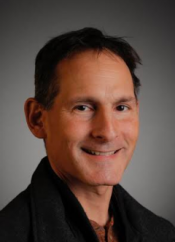 Sebastian Mahfood, OP, Ph.D., has served since 2010 on the faculty of Holy Apostles in Cromwell, CT, after eleven years on the faculty of Kenrick-Glennon Seminary in St. Louis, MO. He has been a Lay Dominican of the Queen of the Holy Rosary Chapter in the Province of St. Albert the Great since 2008. His work in the areas of lay and priestly formation led him to found a Catholic publishing house called En Route Books and Media, which has produced almost two hundred titles since 2014, and an online Catholic radio station called WCAT Radio, which currently hosts over six dozen programs. Dr. Mahfood holds a doctorate in postcolonial literature and theory from Saint Louis University along with several master’s degrees in the fields of comparative literature, philosophy, theology, and educational technology.
Sebastian Mahfood, OP, Ph.D., has served since 2010 on the faculty of Holy Apostles in Cromwell, CT, after eleven years on the faculty of Kenrick-Glennon Seminary in St. Louis, MO. He has been a Lay Dominican of the Queen of the Holy Rosary Chapter in the Province of St. Albert the Great since 2008. His work in the areas of lay and priestly formation led him to found a Catholic publishing house called En Route Books and Media, which has produced almost two hundred titles since 2014, and an online Catholic radio station called WCAT Radio, which currently hosts over six dozen programs. Dr. Mahfood holds a doctorate in postcolonial literature and theory from Saint Louis University along with several master’s degrees in the fields of comparative literature, philosophy, theology, and educational technology.
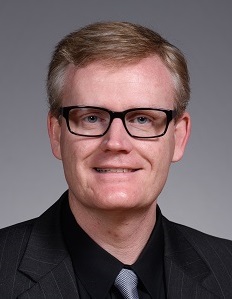
Timothy Paul Westbrook, Ph.D., is an associate professor of Bible and Ministry at Harding University and directs the Center for Distance Education in Bible and Ministry. He has been involved in distance edu-cation professionally since 2005 and has both published and presented on best practices and learning theory as they pertain to online course design. He serves as an executive officer for Faith-based Online Learning Directors (FOLD) and is a member of ACCESS and Society for Professors of Christian Education. Westbrook has earned his M.A. in doctrine and his M.Div. with a concentration in Old Testament from Harding School of Theology. He completed his Ph.D. in Educational Studies at Trinity Evangelical Divinity School.
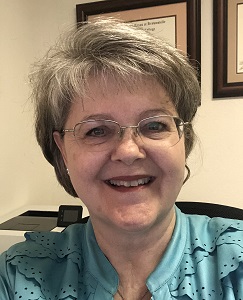
Victoria Dunnam, Ph.D., currently is an Educational Technology Consultant for Union Theology Seminary, a Moodle Administrator, a Quality Reviewer/ Learning Architect for iDesign and is an Instructional Designer and Content Developer for online courses for universities, as well as an adjunct online instructor. She owns and operates Dunnam Consulting. She completed her doctorate from Grand Canyon University with Ph.D. in Psychology with Emphasis on Integrated Technology and Learning, She holds a Master’s Degree in Educational Technology from University of Texas in Brownsville and a BBA Computer Science degree from Hardin Simmons University. She is a member of the executive committee for Faith-Based Online Directors (FOLD) organization. Her interests and passion is online learning and creating quality online course design that impacts student’s online learning experience.
The page you requested could not be found. Try refining your search, or use the navigation above to locate the post.

Today’s students struggle with the research processes required to problem-solve and enlist their findings into cogent academic writing. They lack skill in formulating problem statements, identifying the most relevant databases, using those databases effectively, and evaluating found information. More profoundly, they do not understand the confusing information landscape in which they are working.
Teaching Research Processes aims to help faculty members overcome these deficits and develop strong research abilities in their students.
Paperback: $19.95 | Kindle $9.99
“Badke provides a compelling argument that students do not know how to do research and that faculty are not addressing the problem. He shows that librarians and faculty can work together to teach the process of research to students. Until professors see the need for teaching research processes, students will continue to fumble their way through them. Teaching Research Processes could be a helpful resource for a faculty retreat or a conversation starter.”–Teaching Theology & Religion, January 2014, about the 1st Edition
“This book should prove valuable to anyone trying to design a relational approach to IL and integrate it within curricula.” — Journal of Information Literacy, about the 1st Edition
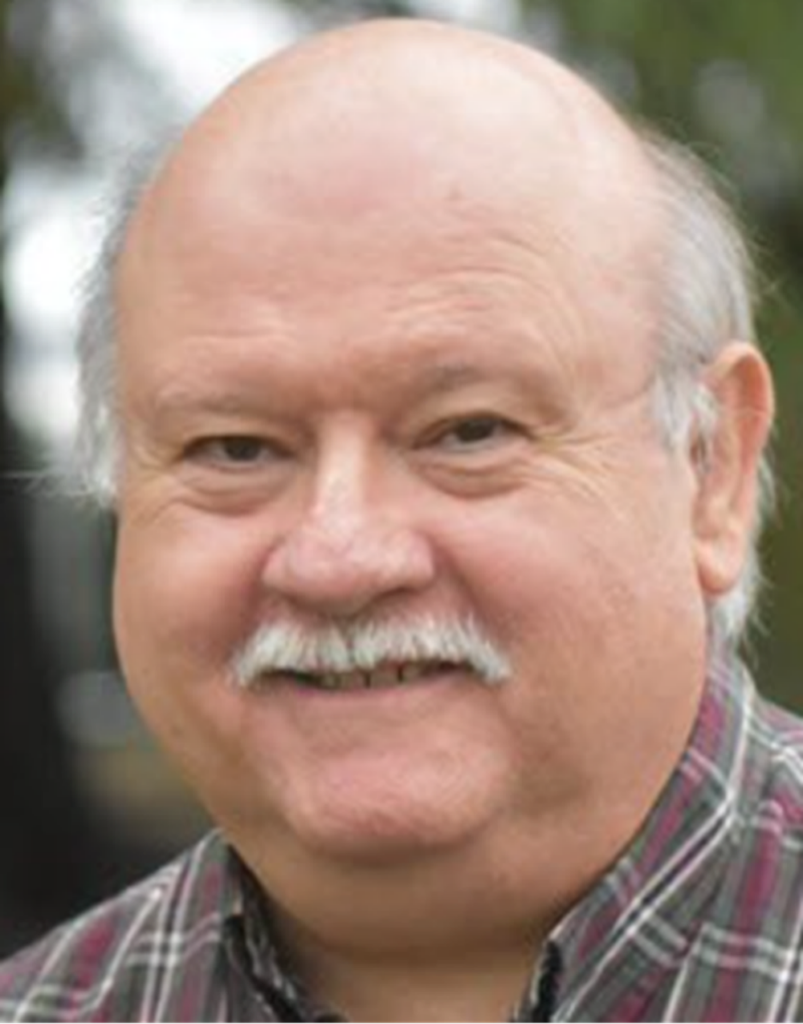
William Badke is Associate Librarian for Associated Canadian Theological Schools and information literacy at Trinity Western University in Langley, British Columbia, Canada. He has taught research processes to thousands of students for almost 40 years. His extensive publications show that he does research rather than just teach it.
The page you requested could not be found. Try refining your search, or use the navigation above to locate the post.
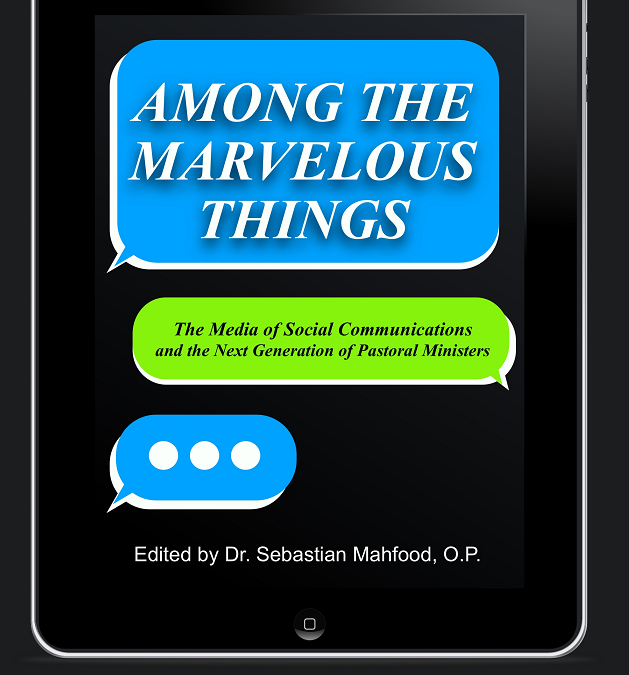

“If we want to evangelize the next generation, we have to talk with the next generation. Dr. Mahfood’s new book is the perfect launching point.” – Shaun A. McAfee, author of Social Media Magisterium: A No-Nonsense Guide to the Proper Use of Social Media
Preface by Sister Marysia Weber, RSM | Foreword by Dr. Timothy Lock
The idea for this book was conceived at St. Joseph’s Seminary in Yonkers, NY, when in the fall of 2019, fifty seminarians and two MA students took an intensive course entitled “Social Media: Introduction to Theology and Practice” under the direction of Dr. Sebastian Mahfood, OP. For the final project, students were asked to create a meme or some other artifact that they could disseminate within social media and track its effectiveness as a tool of evangelization. Those whose projects are published in this book are as follows:

Preface by Sr. Marysia Weber, RSM
Foreword by Dr. Timothy Lock
Presentation 1 by Joan Brisson
Presentation 2 by Tony George
Presentation 3 by Steve McClernon
Presentation 4 by Jinwoo Nam
Presentation 5 by Tobechukwu Offiah
Presentation 6 by Anh Ngoc-Quoc Vu
Presentation 7 by George Ziadeh
Presentation 8 by Fr. Dominic Ibok
Presentation 9 by Jeremy Chan
Afterword by Dr. Sebastian Mahfood, OP
 Dr. Sebastian Mahfood, OP, served from 2010-2023 on the faculty of Holy Apostles in Cromwell, CT, most of those years as Professor of Interdisciplinary Studies and Vice-President, following eleven years on the faculty of Kenrick-Glennon Seminary in St. Louis, MO. He has been a Lay Dominican of the Queen of the Holy Rosary Chapter in the Province of St. Albert the Great since 2008. His work in the areas of lay and priestly formation led him to found a Catholic publishing house called En Route Books and Media, which has produced three hundred and twenty titles since 2014, and an online Catholic radio station called WCAT Radio, which currently hosts about six dozen shows. Dr. Mahfood holds a doctorate in postcolonial literature and theory from Saint Louis University along with several master’s degrees in the fields of comparative literature, philosophy, theology, and educational technology. He lives in St. Louis with his wife, Dr. Stephanie Mahfood, and children, Alexander and Eva Ruth.
Dr. Sebastian Mahfood, OP, served from 2010-2023 on the faculty of Holy Apostles in Cromwell, CT, most of those years as Professor of Interdisciplinary Studies and Vice-President, following eleven years on the faculty of Kenrick-Glennon Seminary in St. Louis, MO. He has been a Lay Dominican of the Queen of the Holy Rosary Chapter in the Province of St. Albert the Great since 2008. His work in the areas of lay and priestly formation led him to found a Catholic publishing house called En Route Books and Media, which has produced three hundred and twenty titles since 2014, and an online Catholic radio station called WCAT Radio, which currently hosts about six dozen shows. Dr. Mahfood holds a doctorate in postcolonial literature and theory from Saint Louis University along with several master’s degrees in the fields of comparative literature, philosophy, theology, and educational technology. He lives in St. Louis with his wife, Dr. Stephanie Mahfood, and children, Alexander and Eva Ruth.
The page you requested could not be found. Try refining your search, or use the navigation above to locate the post.